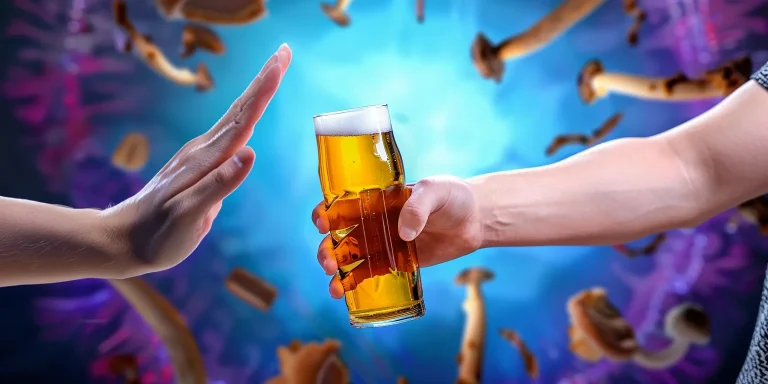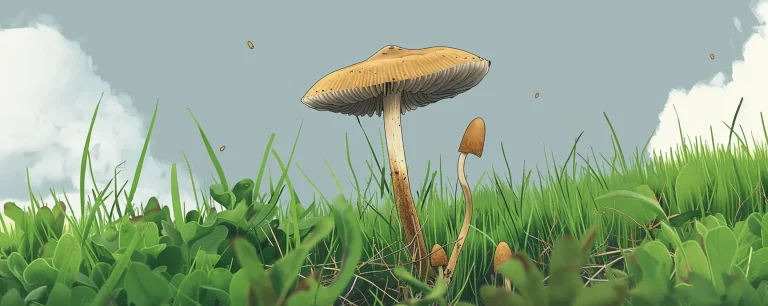Divine beings, the “Deities at the Gate of the Mandal,” Machine Elves, Gods, and Monsters—encounters with extraordinary beings have likely been a part of psychedelic experiences for as long as humanity has been using these substances to expand our minds, speak to our gods, or connect with our ancestors. But what, if any, real value do mystical experiences and encounters like these have for the modern psychonaut?
I recently had the pleasure of sitting down with Dr. Alex Belser, MPhil, Ph.D., a clinical scientist, co-editor of Queering Psychedelics, licensed psychologist, and psychedelic researcher at Yale University. Among the many things we discussed, such as the science of how psychedelics work, and making a home for LGBTQ+ people in the psychedelics movement, was the transformative power of mystical experiences.
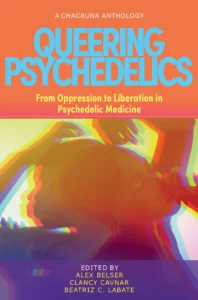
“Mysticism is not one, it is many. And each of these experiences has its own teaching wisdom, meaning, and potentially clinical benefit for people.”
Why Mystical Experiences Matter in Psychedelic-Assisted Therapy
Mystical experiences—often described as profound moments of unity, interconnectedness, transcendence, or encounters with “some sort of god-like, or guiding figure”—have been a subject of human fascination for centuries. Possibly rooted in religious and spiritual traditions, these experiences are characterized by a deep sense of oneness with the universe, a feeling of timelessness, and a conviction that the experience is more “real” than ordinary reality. Often imparting a sense of purpose or mission. In the realm of psychedelic therapy, these mystical experiences are not just incidental; they play a pivotal role. Some research suggests that the depth and quality of such experiences can directly correlate with the therapeutic outcomes of the treatment.(1)
Why are these experiences so crucial in the context of therapy?
Keep Up with Psychedelic Trends
Don’t miss the latest psychedelic news, events, companies, and more.
We respect and protect your privacy. By subscribing your info will be subject to our privacy policy. Unsubscribe easily at any time
According to Dr. Belser, these intriguing events can provide a fresh perspective, allowing individuals to reframe their challenges and find renewed purpose. However, while a mystical experience may come easily for some, others could face challenges.
Dr. Belser provides insight into this phenomenon, saying, “Some people have beautiful, unique, mystical experiences without any difficult work, but about half of our people go through some degree of difficult work.” This duality, where individuals might face challenging experiences, such as a bad trip, but also achieve profound mystical insights, is central to the therapeutic potential of psychedelics. That’s because both challenges and easier, but insightful, mystical experiences have been shown to provide individuals with significant benefits. One study, conducted in part by Roland Griffiths, Ph.D. (Professor in the Departments of Psychiatry and Neurosciences at the Johns Hopkins University School of Medicine) showed that 30% of participants reported feelings of extreme fear during an adverse psychedelic event, yet 80% also experienced improvements in well-being. (2)
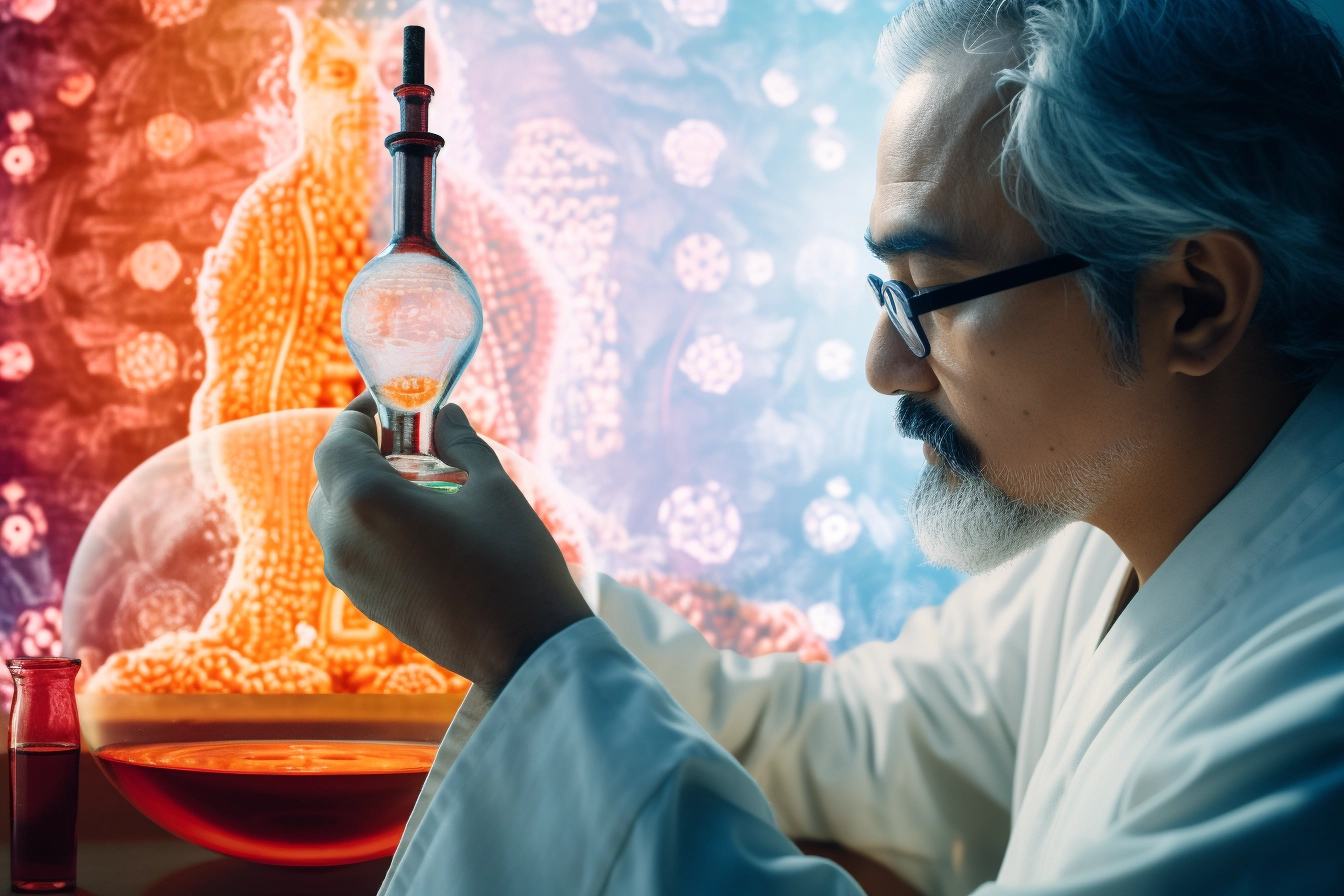
Measuring these mystical experiences, especially in a clinical setting, is of paramount importance. Researchers often employ standardized questionnaires, like the Mystical Experience Questionnaire (MEQ), to gauge the depth and nature of these experiences during psychedelic sessions. The MEQ assesses various domains, including unity, sacredness, and positive mood, providing a comprehensive overview of the participant’s experience. By quantifying these experiences, clinicians can better understand their therapeutic implications and tailor treatments accordingly. As the field of psychedelic therapy continues to evolve, the significance of mystical experiences and their measurement remains at its heart, guiding treatment approaches and outcomes.
“Mystical experiences can be religious, spiritual, mystical, relational, embodied, shamanic, visionary, ancestral. They’re phenomenal experiences.”
Dr. Belser believes that the “inner intelligence” of individuals often guides them to confront their deepest pain. Instead of “merely suppressing symptoms, as is common with many traditional treatments, psychedelic therapy aims to address the root cause.” This makes sense, and as Dr. Belser puts it, “psychedelic means mind-manifesting. It amplifies that pain for a period of time, and then you feel it, achieve catharsis, and work through it. You then feel better on the other side.”
It’s essential to understand that these mystical experiences can be challenging, but they aren’t indicative of a problem with psychedelics. On the contrary, they might be a crucial aspect of their therapeutic efficacy. “They’re not a bug, but a feature of the medication,” Belser emphasizes. This perspective is supported by a study from the International Journal of Drug Policy, which found that challenging experiences can lead to significant personal meaning and spiritual significance.(2)
But the setting in which these substances are administered plays a pivotal role. “It requires that we administer the medication in a supportive context. Some people will struggle if they try it alone,” warns Dr. Belser. This sentiment is echoed in a 2022 study, which highlighted the importance of a controlled environment and professional guidance for optimal therapeutic outcomes.(3)
Keep Up with Psychedelic Trends
Don’t miss the latest psychedelic news, events, companies, and more.
We respect and protect your privacy. By subscribing your info will be subject to our privacy policy. Unsubscribe easily at any time
Encounters with the Divine: A Common Thread in Psychedelic Experiences
One of the most interesting aspects of psychedelic experiences is the frequent reports of encounters with entities or guiding figures.
“Across the board, it seems many psychedelics, like psilocybin, LSD, and 5-MeO-DMT, have common features where users experience encounters with entities or guiding figures. Why is that?,” Dr. Belser asks. He believes it may be a manifestation of an individual’s inner voice, a “reflection of their psyche.” Dr. Belser takes that idea a little further, implying that there isn’t one single answer and that “mystical experiences can be religious, spiritual, mystical, relational, embodied, shamanic, visionary, ancestral things. They’re phenomenal experiences. In my experience in interviewing people there’s actually a broad swath. And so I think that mysticism is not one, it is many. And each of these experiences has its own teaching wisdom, meaning, and potentially clinical benefit for people.”
“In psychology, one might argue from a neurobiological standpoint that 5-MeO-DMT triggers something that creates the human idea of God.”
This phenomenon isn’t isolated to Dr. Belser’s work or anecdotal reports. Johns Hopkins University conducted a survey on DMT experiences and found a significant shift in participants’ spiritual beliefs. “They found that the most common shift was from agnosticism or atheism towards belief in something beyond the material realm,” Belser shares. This transformative shift in worldview is also supported by a study from PLOS ONE, which found that psychedelic experiences often lead to increased feelings of interconnectedness and a decreased focus on materialistic values.(4, 5)
One of the most interesting parts of my conversation with Dr. Belser was in the way this lined up with my own experience with psychedelics. Over the years, I’ve transitioned from being a staunch materialistic atheist to more of a spiritualist. This seems to be something that isn’t entirely outside of the norm for psychedelic medicine. However, in therapy the focus isn’t on promoting a specific spiritual belief, but on exploring the “god of your understanding.” This approach recognizes the multifaceted nature of mysticism, which can offer diverse teachings, wisdom, and potential clinical benefits.
According to Dr. Belser, from a psychological perspective, there are “various interpretations of these divine encounters.” Some might argue from a neurobiological standpoint, suggesting that substances like 5-MeO-DMT activate neural pathways responsible for our conception of divinity. This could be an evolutionary adaptation or a reflection of genuine spiritual realms. “Psychedelics challenge a reductive or materialist worldview,” Belser states. Roland Griffith, another pioneer in this field, agrees, considering these profound experiences as valuable data points.(3)
Beyond the Material: Psychedelics and the Expansion of Consciousness
The transformative power of psychedelics isn’t just limited to personal healing or spiritual encounters. They challenge our fundamental understanding of consciousness and reality. Dr. Belser touches on this, saying, “In psychology, one might argue from a neurobiological standpoint that 5-MeO-DMT triggers something that creates the human idea of God.” This perspective ranges from evolutionary theories to genuine beliefs in entities beyond our comprehension.
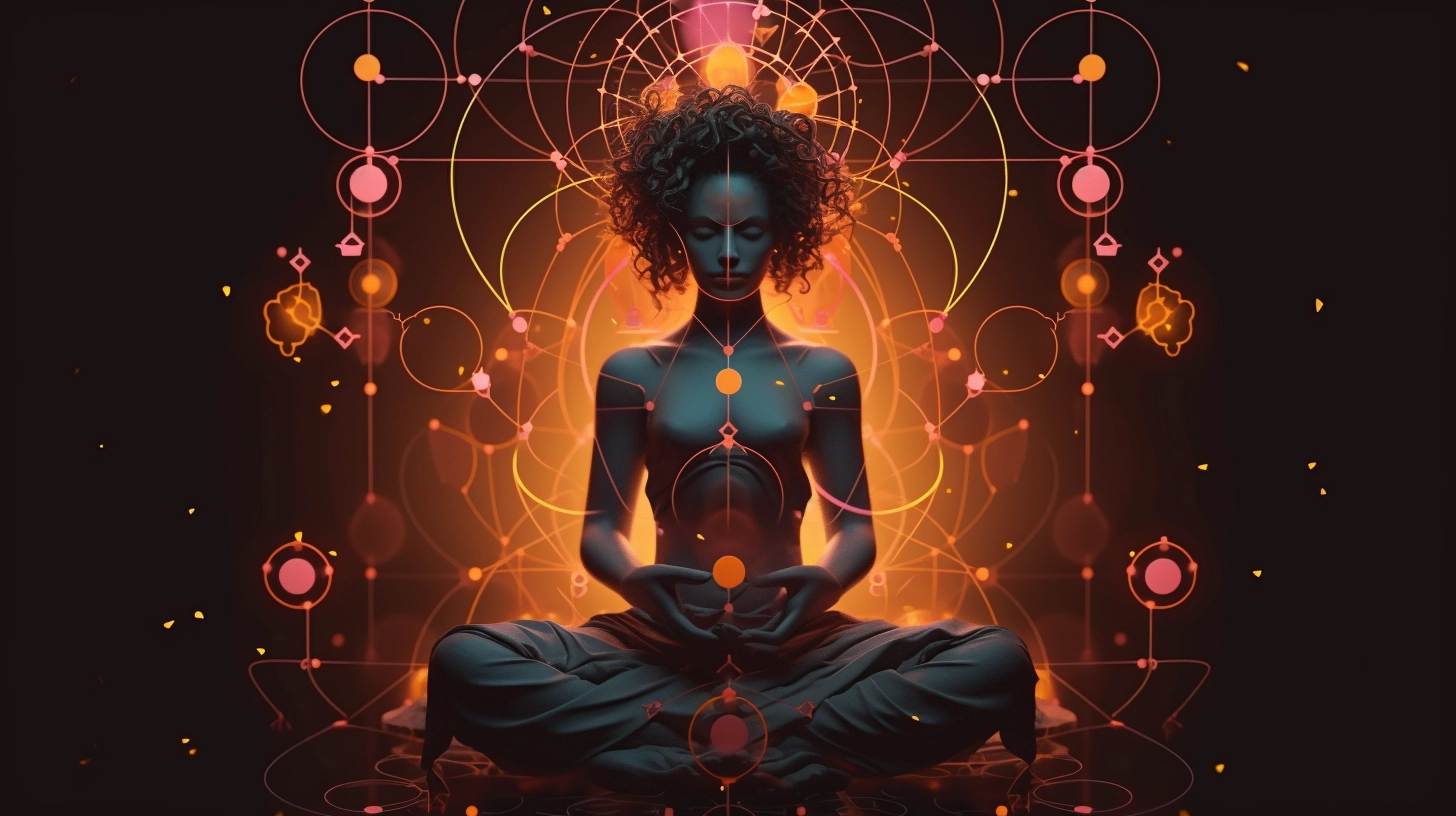
A study from Frontiers in Psychiatry supports this idea, suggesting that psychedelics might offer a window into non-ordinary states of consciousness, allowing users to access realms of experience typically hidden from everyday awareness. This expansion of consciousness can lead to significant insights, personal growth, and a deeper understanding of one’s place in the universe.(6)
Furthermore, these experiences often challenge the “materialistic worldview” that dominates much of modern society. As Dr. Belser and Roland Griffith both emphasize, when individuals convey experiences that seem beyond comprehension, these shouldn’t be dismissed but rather considered as valuable insights into the nature of consciousness and reality.
“A large body of evidence, including longitudinal analyses of personality change, suggests that core personality traits are predominantly stable after age 30. To our knowledge, no study has demonstrated changes in personality in healthy adults after an experimentally manipulated discrete event. Intriguingly, double-blind controlled studies have shown that the classic hallucinogen psilocybin occasions personally and spiritually significant mystical experiences that predict long-term changes in behaviors, attitudes and values.”
The therapeutic potential of these experiences is vast. By confronting and working through deep-seated pain, individuals can achieve “catharsis and healing.” Moreover, the spiritual insights gained can lead to a more “profound sense of purpose, interconnectedness, and understanding.”
The world of psychedelic-assisted therapy is rich with potential, not just for addressing mental health issues but for expanding our understanding of consciousness, spirituality, and the very nature of reality. As research continues and societal perceptions shift, we might be on the cusp of a new era in mental health treatment and spiritual understanding. Could psychedelics help us understand the “god” and transformative power within us all?
Sources

1. Davis, A. K., Clifton, J. M., Weaver, E. G., Hurwitz, E. S., Johnson, M. W., & Griffiths, R. R. (2020). Survey of entity encounter experiences occasioned by inhaled N,N-dimethyltryptamine: Phenomenology, interpretation, and enduring effects. Journal of Psychopharmacology, 34(9), 1008–1020. https://doi.org/10.1177/0269881120916143
2. Gashi, L., Sandberg, S., & Pedersen, W. (2021). Making “bad trips” good: How users of psychedelics narratively transform challenging trips into valuable experiences. International Journal of Drug Policy, 87, 102997. https://doi.org/10.1016/j.drugpo.2020.102997
3. Barber, G. S., & Aaronson, S. T. (2022). The Emerging Field of Psychedelic Psychotherapy. Current Psychiatry Reports, 24(10). https://doi.org/10.1007/s11920-022-01363-y
4. Griffiths, R. R., Hurwitz, E. S., Davis, A. K., Johnson, M. W., & Jesse, R. (2019). Survey of subjective “God encounter experiences”: Comparisons among naturally occurring experiences and those occasioned by the classic psychedelics psilocybin, LSD, ayahuasca, or DMT. PLOS ONE, 14(4), e0214377. https://doi.org/10.1371/journal.pone.0214377
5. Ko, K., Knight, G., Rucker, J. J., & Cleare, A. J. (2022). Psychedelics, Mystical Experience, and Therapeutic Efficacy: A Systematic Review. Frontiers in Psychiatry, 13. https://doi.org/10.3389/fpsyt.2022.917199
6. MacLean, K. A., Johnson, M. W., & Griffiths, R. R. (2011). Mystical experiences occasioned by the hallucinogen psilocybin lead to increases in the personality domain of openness. Journal of Psychopharmacology, 25(11), 1453–1461. https://doi.org/10.1177/0269881111420188
This material is not intended as a replacement or substitute for any legal or medical advice. Always consult a medical professional about your health needs. Psychedelics are widely illegal in the United States, and readers should always be informed about local, state, and federal regulations regarding psychedelics or other drugs.
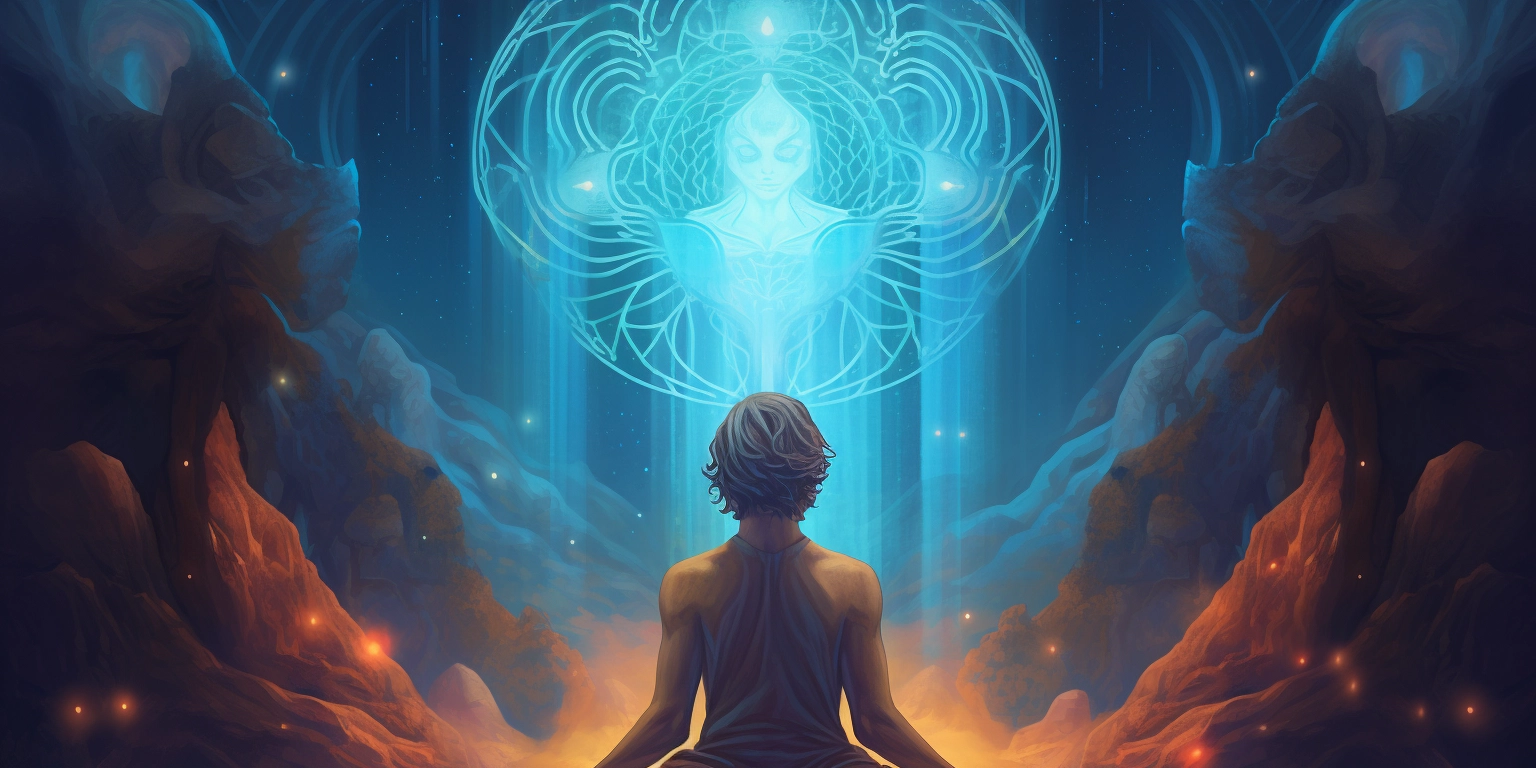
 David Connell
David Connell